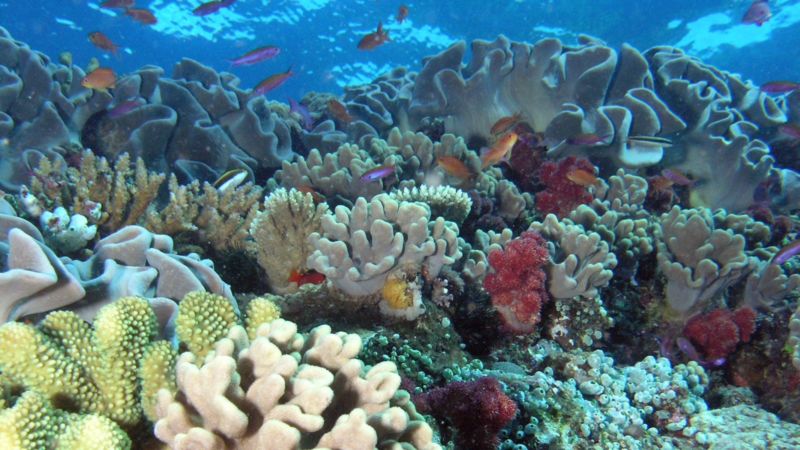
Corals are
extremely sensitive to climate change. The polyps that rebuild famous reefs are not very flexible in terms of the influence of external factors, so if conditions are unfavorable, then the polyps may begin to die (and die). Their livelihoods are depressed by fever, changes in acidity, infection, and even plastic.
The gradual change in environmental conditions complicates the formation of coral reefs. Now scientists are trying to help the corals, making them more sustainable. This can be achieved only if you begin to modify the DNA of polyps.
By the way, unlike the generally accepted opinion, scientists do not know much about the life of corals - research is
carried out relatively little. This is especially true for large coral ecosystems, since few scientists consider a whole coral as a living organism. And this is quite a serious problem on the path to coral survival.
More recently, scientists have learned that coral death is often caused by the effect of elevated temperature on the interaction of corals and photosynthetic algae, which provide polyp colonies with food. Symbiosis is disturbed, since algae cannot develop normally. Consequently, colonies of polyps (corals) do not receive enough food and die. One way to solve the problem is to create heat resistant algae. But the problem is that the details of symbiosis are not very well known to scientists.
Reef formation is a complex process that scientists continue to study. The study is complicated by the fact that there are a lot of species of living organisms and the principles of the formation of systems of this type, and the reef growth rate is very low. Different corals at the same depth feel differently. Scientists can roughly understand which genes are responsible for which adaptation mechanisms of polyps, but no one has a complete picture.
This is not surprising, since scientists, in addition to editing genes, have to watch how polyps behave and their colonies after DNA changes. Waiting can be delayed for many years, because the colonies of polyps expand very slowly, and the process can not be accelerated.
Now scientists are looking for opportunities to circumvent the time constraints. As for the modification itself, methods like CRISPR / Cas9 work best. They are very effective in many cases, so that when working with corals, it must also show the result. A small international group of researchers decided to dedicate their time to studying the effects of coral DNA editing.
They will face certain difficulties, since the corals and breed in a rather unusual way. Polyps just throw eggs and spawn into the water column, “hoping” that all this will find each other and new polyps will appear from the fertilized eggs. Specialists of the group in question above have hope that there are polyps that can reproduce well in the laboratory. In this case, the DNA of the polyp embryo can be modified, which will allow changing the appearance of the colony, thus increasing its resistance to external factors.
By the way, like a person, polyps have two sets of chromosomes - one from each parent. If you change the DNA, you will have to limit yourself to either the male or female set of genetic material. The problem is that DNA modification is usually performed after the cells begin to divide. This leads to a mixture of modified and normal cells in the body of polyps, which complicates the study of the characteristics of modified organisms. The vital activity of such polyps may differ from the organisms untouched by scientists, but their study is difficult because they are a complex mixture of different types of DNA. All this leads to the risk of the emergence of hybrid systems, the results of which are difficult to interpret in some way.
In order to succeed, scientists need to understand which parts of the DNA of polyps are responsible for which features of life. This is the work of specialists who closely observe the complex biological behavior of living organisms, which form vast tracts of reefs. It may be possible for specialists to save coral reefs, although this requires quite a lot of time. It’s unclear when exactly the research will end, but it is clear that preserving corals is simply necessary if we want to leave the marine ecosystems intact. If the corals disappear, then a lot will change. And these changes will not always be favorable.
DOI:
10.1073 / pnas.1722151115